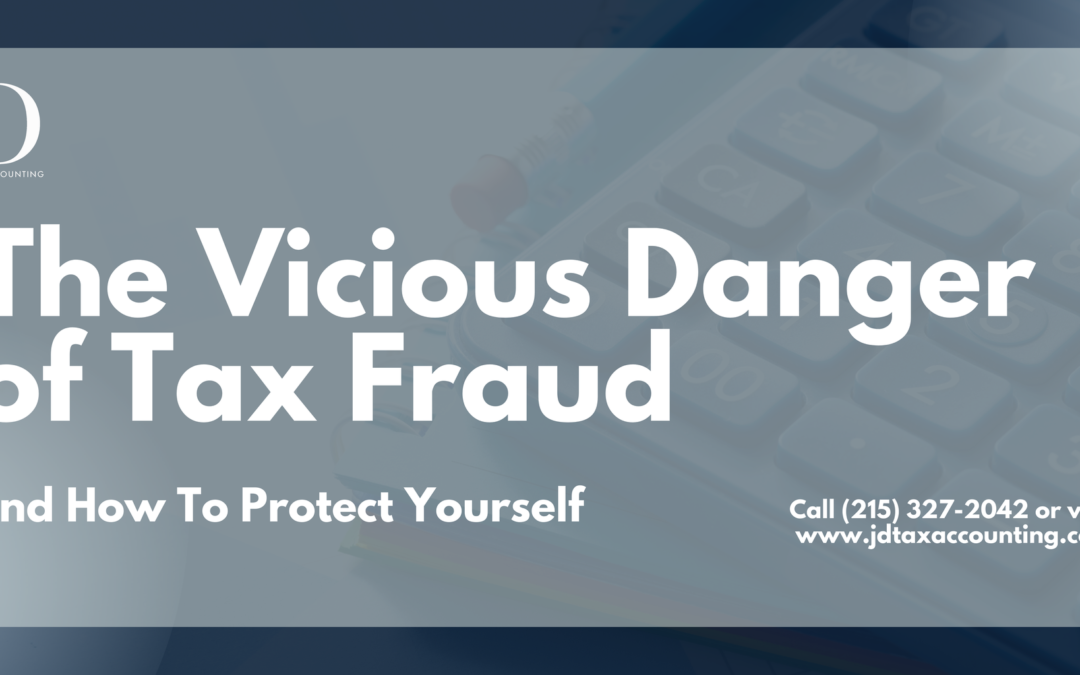The Vicious Danger of Tax Fraud and How To Protect Yourself
The pandemic has brought unwanted burdens to everyone. It did not choose who it wanted to burn out to— it just deliberately affected each and all of us. While this worldwide emergency is a health-related disaster, it also became a financial tragedy. And while many are choosing the right, lawful way of coping up financially, others prefer to be vile and evil, therefore corrupting other people’s financial wealth to compensate for their own needs. One of these evil practices is Tax Fraud- a very unlawful way of deliberately evading taxes or defrauding the Internal Revenue Service.
Tax scam cases increased this pandemic, and the IRS has already been alarmed. This article will talk about tax scams, their danger, and what you must do to keep yourself protected.
What is a Tax Scam?
Scam means: ‘to deceive or defraud to obtain something’; a tax scam happens when someone willingly attempts identity theft to steal someone’s money.
According to IRS Commissioner Chuck Rettig, Scammers continually “use the pandemic” to do these vicious acts in times of crisis. In a press release, he added that they had informed honest taxpayers to be alert on recent scams and how important it is to stay vigilant while the IRS works to stop these criminals.
The Different Types of Tax Scams You Should Look Out For:
The IRS has already compiled a list of these crimes, which they call the ‘Dirty Dozen. These 12 heinous schemes are divided into four main categories, basing on who does the crime and who are its victims:
- Pandemic-related scams- target people with stimulus payments
- Personal information cons- uses the act of ransomware, phishing, and the likes
- Ruses focusing on unsuspecting victims-
- Schemes that persuade taxpayers into unscrupulous actions.
Inaccurate Taxpayer 1099-Gs Caused By Unemployment Fraud
Taxpayers who lost their job during this pandemic were given unemployment compensation accordingly. And these scam artists exploited the situation. Through identity theft of people who did not file unemployment compensation, they fraudulently filed for the benefits themselves and stole the funds.
How Do I Know If I Am or Was A Tax Scam Victim?
If you’re thinking right now on whether you are a victim of a tax scam, please review the instances below wherein a third party might have done these acts to you recently:
- If someone emailed, phoned, or used social media channels, asking you for your personal and financial information like your Social Security number or SSN,,
- If you encountered a ‘ghost’ tax return preparer, or when someone does not sign a tax return, they prepared.
- If you received and acted on a fraudulent IIRS impersonation email campaign with a tax transcript. This is their bait for you to open documents containing malware.
- If you received and answered a phone call from someone claiming to be from Taxpayer Advocate Service
- If you receive a phone call from someone claiming to be an IRS employee who most likely used a fake name and bogus IRS identification badge numbers,
- If someone claiming from IRS said you owe IRS money and must be paid via wire transfer or gift cards,
- For deaf and hard-hearing individuals, if you have received a call using a video relay service or VRS, and;
- For people whose native language is not English, if you have received a phone call asking you for information or money, and if you’ve declined, went on to threaten you for deportation and/or police arrest
The IRS has reported that these tax criminals are going non-stop and ever-increasing. In addition, they’re developing various scams to take advantage of honest taxpayers.
If you have ever encountered one of these, then urgently report to your state agency and contact the IRS.
How to Keep Yourself Protected from Tax Scams
The IRS heavily urges all taxpayers to remain vigilant, alert, and careful from all these acts and scams we have mentioned above.
Please take a look at these vital pieces of advice from the IRS to keep yourself protected:
- There are only two (2) official websites you must get information from the IRS website and the IRS.gov. Apart from this are false and should NEVER be trusted.
- For people who received Form 1099-G, a report of an unemployment compensation they did not receive, the IRS urgently wants you to contact your state agency for the corrected form. If the updated form is not available, you must complete your return filing by claiming only the income plus the unemployment compensation you have personally received.
- Be on the lookout for suspicious emails, phishing, and malware schemes.
- Be mindful and always remember that the legitimate IRS agents will never call to demand immediate payments using specific payment methods like gift cards and wire transfers.
- The IRS also will never threaten to deport you or scare you of police arrest.
- The IRS will never demand you pay taxes immediately without giving you the chance to appeal or ask questions about your taxes.
- In cases that IRS criminal investigators visit your home or business without warning, they will do a legal investigation. They will NEVER demand you of any payment, so keep out, and as soon as someone asks you for money claiming that they are from IRS, immediately send them out and report them.
- Be alert against IRS impersonations. DO NOT click on something immediately.
- Use multi-factor authentication. Legitimate online tax software products have this option as an additional layer of security. Accomplish this, make sure you get this to all accounts, and never share your security code with anyone.
- Whenever doubtful of something, first contact IRS for verification to avoid unprecedented tax scam incidents.
The IRS’ Additional Protection for Taxpayers
Because of the highly alarming increase of tax scam cases, the IRS provided an additional way of securing the protection of its dearest taxpayers, and that is the Identity Protection PIN or IP Pin.
IP Pin is available for all taxpayers. It is a 6-digit code that is used to lock and open a tax account. All returns without the correct IP Pin will automatically be rejected and subjected to investigation for fraud.
References
IRS. (2021 June 28). Americans urged to watch out for tax scams during the pandemic. Retrieved July 8, 2021 from: IRS announces “Dirty Dozen” tax scams for 2021 | Internal Revenue Service
IRS. (N.D.). Tax Scams/Consumer Alerts. Retrieved July 8, 2021 from: Tax Scams / Consumer Alerts | Internal Revenue Service (irs.gov)


